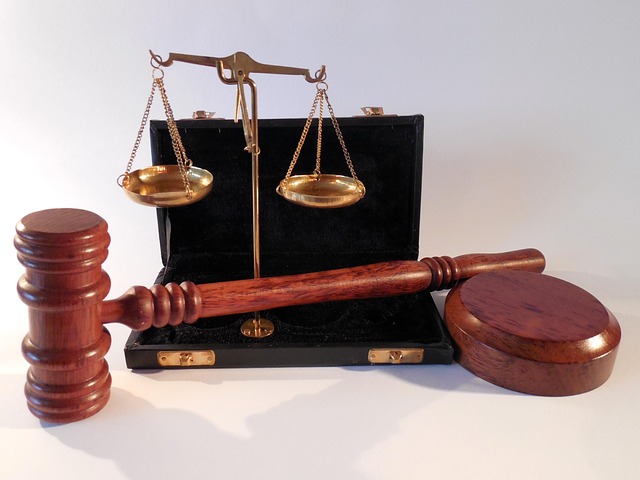Consumer protection lawsuits hold businesses accountable for unfair practices, with legal disputes often reaching trials where the process of empaneling a criminal jury is key. This process meticulously selects jurors capable of understanding complex laws and rendering fair decisions, ensuring consumer rights are protected while holding wrongdoers accountable. A successful defense relies on this careful jury selection, which can lead to charge dismissal if the prosecution fails to prove guilt beyond a reasonable doubt.
Consumer protection suits play a pivotal role in safeguarding individuals from deceptive practices, ensuring fair business conduct, and upholding justice. This article delves into the intricacies of these legal battles, offering a comprehensive guide on consumer protection laws, suit initiation, and the unique dynamics of jury selection through the process of empaneling a criminal jury. By exploring these aspects, readers gain insights into the mechanisms designed to protect consumers and hold businesses accountable.
- Understanding Consumer Protection Laws and Their Purpose
- When and How Consumer Protection Suits Are Filed
- The Role of a Judge and the Jury in Consumer Protection Cases
- Process of Empaneling a Criminal Jury in Consumer Protection Lawsuits
Understanding Consumer Protection Laws and Their Purpose

Consumer protection laws are designed to safeguard individuals from unfair business practices and ensure a level playing field in the marketplace. These regulations aim to foster trust between consumers and businesses, promoting ethical conduct and transparency. The primary purpose is to empower buyers by providing them with adequate information, preventing deceptive marketing strategies, and offering remedies for any perceived wrongdoings. By enforcing these laws, authorities seek to protect not only the financial interests of consumers but also their right to make informed decisions.
In legal terms, consumer protection suits involve a complex process that often culminates in the empaneling of a criminal jury. High-stakes cases, especially those involving white-collar and economic crimes, demand meticulous investigation and robust legal arguments. The outcome can significantly impact businesses, potentially leading to complete dismissal of all charges if the prosecution fails to prove its case beyond a reasonable doubt.
When and How Consumer Protection Suits Are Filed

Consumer protection suits are filed when individuals or groups believe they have been wronged by a respective business, leading to unfair or deceptive practices. These legal actions are initiated to protect the rights and interests of consumers, ensuring they receive fair treatment in transactions. When filing such suits, plaintiffs must demonstrate that there was a violation of established consumer protection laws, which vary across jurisdictions.
The process typically begins with gathering evidence, including documents, records, and witness statements, to support the claim. Once sufficient proof is compiled, legal representatives for the plaintiffs will present their case before a judge or, in some cases, opt for a trial by jury. The latter involves a process of empaneling a criminal jury, where potential jurors are selected to hear the evidence and ultimately decide the outcome. This mechanism ensures that the decision-making process is fair and representative of the philanthropic and political communities’ interests in safeguarding consumers.
The Role of a Judge and the Jury in Consumer Protection Cases

In consumer protection suits, the role of a judge and jury is pivotal. The judge acts as the impartial facilitator, ensuring the legal process is followed and guiding the court proceedings. They interpret the law and instruct the jury on applicable legal principles, helping them make informed decisions based on the evidence presented.
The jury, selected through the process of empaneling a criminal jury, plays a crucial role in reaching a verdict. Their unprecedented track record in protecting consumer rights is evident across the country, with many cases resulting in complete dismissal of all charges against wrongdoers. This balanced approach ensures that while businesses are held accountable for their actions, consumers receive fair and just protection.
Process of Empaneling a Criminal Jury in Consumer Protection Lawsuits

In consumer protection lawsuits, the process of empaneling a criminal jury involves careful selection to ensure an impartial and knowledgeable panel. The first step is jury pool qualification, where prospective jurors are evaluated based on their understanding of consumer rights, awareness of legal terms, and any personal or professional experiences relevant to the case. This stage is crucial in filtering individuals who can commit to the proceedings and grasp the intricacies of consumer protection laws.
Once qualified, potential jurors are further scrutinized through a process known as voir dire, where attorneys from both sides pose questions to gauge biases, preconceptions, and ability to render a fair verdict. The judge oversees this, ensuring a balanced mix of perspectives. An unprecedented track record in winning challenging defense verdicts often relies on this meticulous empaneling, as it guarantees a jury composed of individuals who can navigate the complexities of consumer protection law and deliver an objective judgment, reflecting a general criminal defense strategy.
Consumer protection suits play a vital role in ensuring businesses uphold ethical standards and protect their customers’ rights. By understanding the legal framework, consumers can navigate the system effectively. The process of empaneling a criminal jury in these lawsuits is a crucial step, ensuring fairness and accountability. Through this mechanism, wronged consumers gain access to justice, promoting a more transparent and responsible business environment.






